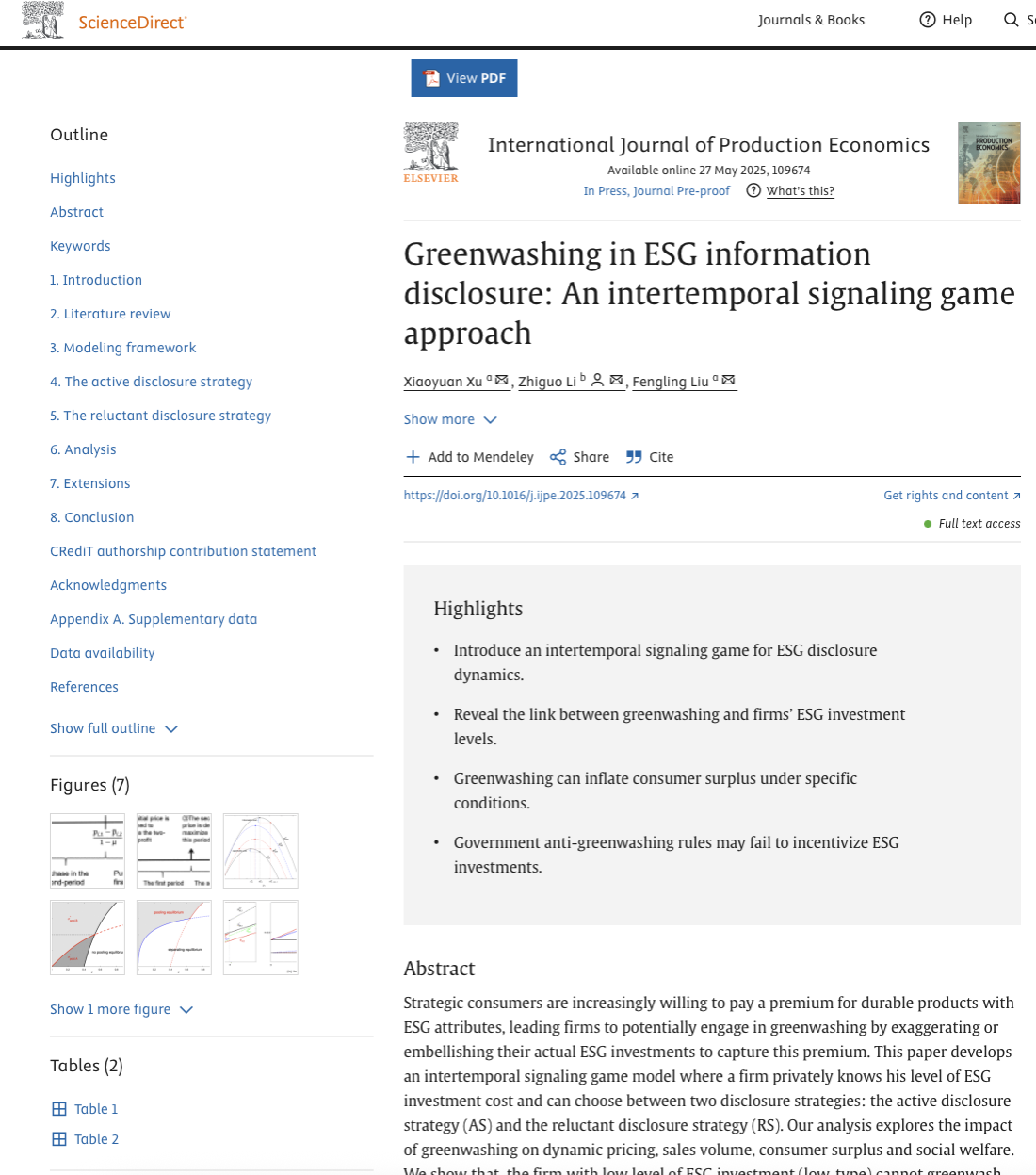【论文信息】
Xiaoyuan Xu(徐小媛), Zhiguo Li*(李志国), Fengling Liu, Greenwashing in ESG information disclosure: An intertemporal signaling game approach[J], International Journal of Production Economics, 2025, 109674, https://doi.org/10.1016/j.ijpe.2025.109674.(中科院SCI一区Top、ABS-3星期刊)
【作者信息】
第一作者:徐小媛,工商管理学院2023级在读硕士研究生,研究方向:博弈对策理论。
第二作者(通讯作者):李志国,教授、博士生导师,研究方向:区域发展管理、运营管理、企业管理。
第三作者:刘凤灵,工商管理学院2024级在读硕士研究生,研究方向:博弈对策理论。
【基金支持】
重庆市研究生科研创新项目(CYS240542)
【论文摘要】
Strategic consumers are increasingly willing to pay a premium for durable products with ESG attributes, leading firms to potentially engage in greenwashing by exaggerating or embellishing their actual ESG investments to capture this premium. This paper develops an intertemporal signaling game model where a firm privately knows his level of ESG investment cost and can choose between two disclosure strategies: the active disclosure strategy (AS) and the reluctant disclosure strategy (RS). Our analysis explores the impact of greenwashing on dynamic pricing, sales volume, consumer surplus and social welfare. We show that, the firm with low level of ESG investment (low-type) cannot greenwash effectively when the cost difference between low and high ESG investment levels is large, since the firm with high level of ESG investment (high-type) is more willing to reveal his type; otherwise, the low-type firm has the opportunity to greenwash because the high-type firm prefers to hide his type. Moreover, choosing AS over RS increases the firm’s first-period sales but reduces his secondperiod sales due to the “information-inference” effect and the “price-shifting” effect. Interestingly, under certain conditions, greenwashing can actually increase consumer surplus, driven by consumers’ strategic behavior. Remarkably, the government’s “anti-greenwashing” requirements do not incentivize the firm to increase his ESG investment if the valuation discounts in the second-period is significant.

